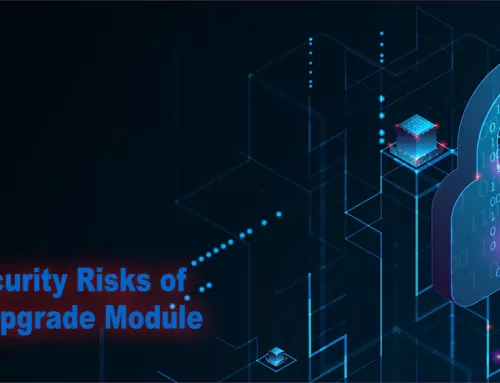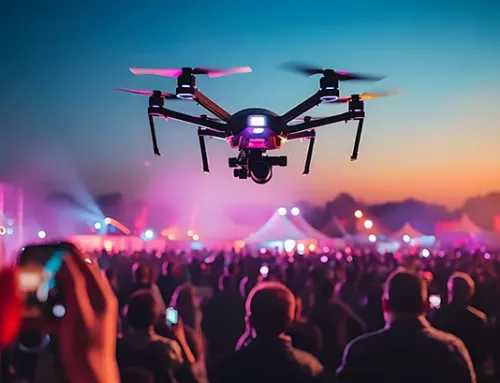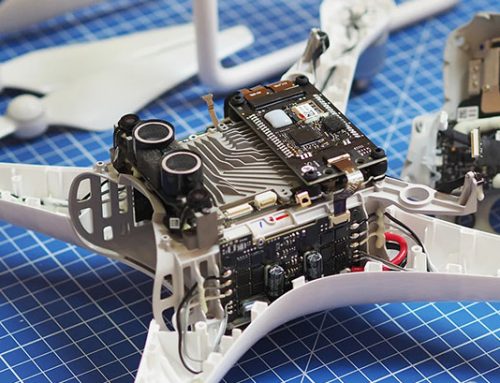In a rapidly evolving landscape where drones are becoming increasingly ubiquitous, investing in counter-drone training is not just prudent but essential. Security personnel must be equipped to swiftly identify unauthorised drone activity, differentiate between benign and malicious intent, and deploy appropriate countermeasures without compromising public safety or exacerbating tensions.
In recent years, the rise of drones has brought about a paradigm shift in security dynamics, introducing both unprecedented opportunities and challenges. However, it’s essential to address these challenges with a proactive and informed approach. While drones themselves often offer innovative solutions for a number of reasons, they also pose significant security risks when in the wrong hands. Unfortunately, the emergence of amateur drone enthusiasts, often armed with little more than curiosity and a remote control, has led to unforeseen incidents and accidents.
All too often, security personnel find themselves unprepared to effectively manage drone-related incidents, leading to confusion, unnecessary confrontations or conflicts with the inevitable potential risks to protected venue safety.
These types of scenarios are further compounded by the concerning trend emerging where self-appointed YouTube “auditors”, or citizen journalism, intentionally provoke security teams using drones. This unnecessary conflict often arises from a fundamental lack of knowledge among those tasked with securing events or premises, highlighting a critical need for proactive training and preparedness. Ordinarily, capturing footage of a public structure or building or navigating a drone above industrial areas might not immediately strike one as captivating content. However, when paired with encounters involving anxious security personnel or even law enforcement, these scenarios are unexpectedly gaining popularity and traction on YouTube.
The auditors use security concerns surrounding the filming of staff and protected premises, alongside limited powers to prevent it. They appear to provoke and antagonise staff and site security into potentially embarrassing reactions, often asserting that staff are overstepping legal boundaries. They are also well-versed in what they perceive as their own legal rights and often cite legislation in their interactions with staff.
Typically, every video adheres to a familiar pattern; individuals position themselves outside a building, recording using body worn video or similar. Predictably, security personnel emerge to inquire about their activities and request cessation. The videographer then asserts their legal right to film anything within their purview, including launching a drone, thereby often sparking a heated debate.
Below is a selection of three YouTube videos illustrating the issues faced by security personnel from self-appointed auditors.
Serious and Organised Crime Unit
Nexus House, Ashton Under Lyne
BBC Breakfast studios
Manchester, Quay Side
UK Big Brother House 2023
Garden Studios, London NW10
Consider an alternative scenario: A major sporting event or outdoor festival is underway, drawing thousands of spectators to a packed outdoor venue. Amidst the excitement, a drone operator decides to capture aerial footage of the event, unaware of the strict airspace restrictions in place. As the drone encroaches upon the venue’s perimeter, security teams are alerted to the potential threat. However, lacking adequate training in counter-drone operations, they find themselves ill-equipped to respond effectively, leading to confusion, panic, and a disruption in the event.
The need for comprehensive training and education in counter-drone operations is underscored by incidents like those mentioned. Real-world experienced operators, such as those within Aerial Defence Ltd, offer invaluable insights into processes, procedures, and legislation surrounding drone detection and mitigation. Equipping security teams with this knowledge empowers them to confidently handle drone-related threats without unnecessary conflict escalation. Training in counter-drone operations encompasses not just technical proficiency, but also understanding the evolving drone landscape, including legal frameworks, ethical considerations, and tactical response strategies.
By immersing security teams in realistic scenarios, trainers can instil confidence, sharpen decision-making skills, and foster a culture of proactive risk mitigation. From identifying unauthorised drone activity to implementing appropriate response protocols, well-trained security personnel play a crucial role in safeguarding both people and property.
If you find yourself grappling with the complexities of drone security or wish to enhance your team’s capabilities, we invite you to reach out. Our team of experienced professionals stands ready to provide tailored training solutions designed to meet your specific needs. Together, we can bridge the gap in knowledge and bolster security measures to mitigate potential risks effectively.







Leave A Comment